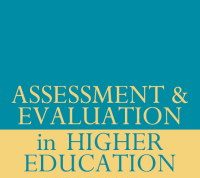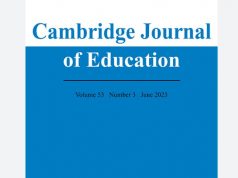WELCOME TO THE SECOND INTERVIEW IN A SERIES INTRODUCING YOU TO MEMBERS OF THE DER GROUP. IN THIS INTERVIEW, VISITING ERASMUS STUDENTS PEDRO BOLEA AND MOTAHAR SALEHEEN INTERVIEW DR CARLO PERROTTA.
Carlo Perrotta, a senior lecturer in Digital Literacies at Monash University, has been working in the field of Educational Technology and Digital Literacies for almost nine years now. He has not only worked with various research institutions and think tanks, but also published on a variety of topics including the datafication of education, new forms of technological literacies, socio-material analyses of digital education or use of video games in educational settings. In this interview, he speaks about his academic and professional experiences, research interests and views on the production of data, the accountability of algorithms, the factors shaping the adoption of digital technologies in education, and the use of videogames in the classroom settings.
 Q: Who is Carlo Perrotta and what is his story?
Q: Who is Carlo Perrotta and what is his story?
CP: I am senior lecturer in Digital Literacies here at Monash University. I joined Monash University in May 2018. Before joining Monash, I worked in the UK for several years in the field of educational technology and digital literacies. I completed my first degree in Psychology from Italy and then I got my PhD from the University of Bath in 2009. Since then, I have been doing research on different topics related to new forms of knowledge involving technology and digital literacies.
My trajectory is a bit unusual, because I didn’t actually start in academia. My journey started after my PhD, when I started working with a think tank called Futurelab in Bristol, researching and advocating the meaningful uses of technologies in education. Futurelab was an interesting place, it was affiliated with University of Bristol, but it was mainly independent and funded with public money. The organization was working at the intersection of policy and research, and it was very well connected with various Universities but also with sectors of the British government. During my time there, I was lucky enough to meet a lot of people doing interesting work in the field of educational technology, which helped me develop my research agenda on these issues. After Futurelab, I joined the Institute of Education at the University of London, where I met Neil Selwyn and worked for a couple of years on a project that was funded by Microsoft Partners in Learning. In this project we were looking at the uses and non-uses of educational technology in developing 21st century skills. It was great working with Neil, and in addition the project allowed me to travel as we were collaborating with an institution in the US, and we also had partners in other countries. After finishing that project and some further ‘post-doctoral meandering’ I moved to the University of Leeds, where I started researching a number of areas, like the use of video games in the classrooms or outside the classrooms, digital literacies, and other aspects related to the importance of data and its uses in education, etc…. Currently, I’m trying to identify an area where I can focus in a more sustained and consistent way, and I hope that working at Monash University will assist me in achieving that.
Q: One of these areas that you seem to be interested in, is the datafication of education. What is your perspective on it?
CP: I think if we want to understand this phenomenon, we need to work at the same level with people that develop these systems, so we need to engage with the complexities of data from methodological and technical perspective. We can’t just talk critically about datafication without understanding how it works, we need to engage in a cognizant way with the complexities of this phenomenon. It’s quite a challenge because as educational researchers, we are not naturally equipped to understand these technologies meaningfully. The argument that I am trying to develop is that, by analyzing the way these systems work mechanically, we can then develop more a robust and informed critical argument, identifying the things that might be problematic. It’s not just about criticizing, but it is also about trying to understand alternative ways in which the systems can operate.
Every aspect of education is somehow being changed by data. The question is not about data per se, but it’s rather about the quality of the data, and the methods that are being used by people, schools, or organizations to analyze these data., There is nothing inherently wrong about data in itself. But, there is bad data and good data. At the same time, there are methods to make sense of the data which are more problematic than others, so we need to understand how these methods work and the assumptions that they have. They are becoming increasingly automated and obscure, so this kind of scrutiny is required.
Q: In fact, algorithmic accountability is an area of research that is gaining more and more attention.
CP: Yeah, the issue of accountability is very high on the agenda. I think the more obscure and complex these methods of data analysis become, the more difficult it becomes to trace the linkages of accountability. Data is always contextual and determined by a multitude of factors. Once the data becomes decontextualized and processed, then all of those histories and contextual factors fizzle out. But you need these aspects in order to retrace the human, organizational and social aspects that have led to this data. If you can’t see those things anymore, then it becomes a problem. I suppose that it’s a challenge for educational researchers to open up the black box and retrace all those linkages and connections, so that we could actually start talking about accountability in a meaningful way; in terms of interests, conflicts, power dynamics, etc. I believe that’s what accountability is and that’s what these methods of data analysis do sometimes, that is, they hide the politics and the challenge is to rediscover it in some way.
Q: As these “obscure” methods of data analysis are becoming increasingly important in the schools, they might be diminishing the voice of teachers, taking away some of their traditional power. How do you think that teachers should deal with these new complex mechanisms?
CP: That’s a difficult question. Teachers are already overburdened by a number of commitments and requirements. As an educational researcher, I might have the time and resources to engage with these sort of things, but as a teacher who already has a workload, expecting the same level of engagement would be challenging. So, I believe that we need to make sure that knowledge around these systems could be shared between people, between groups, so that teachers have access to different types of knowledge, different types of expertise. And maybe there is also a need for new forms of expertise. For example, in schools, there could be people who are equipped and have the time and resources to help others to make sense of it in an informed way. So, it’s a matter of dialogue, networks, shared practices and understandings, rather than laying another responsibility on the teachers’ doorstep, which might neither be fair nor feasible. There is a responsibility for the governments, organizations, universities, schools, etc., to put in place systems and networks to help people at the frontline of education to have a more informed understanding of these things. How to do that, it’s an open question, but it’s a conversation that probably needs to happen.
Q: Part of your work also analyzes the factors that shape technology adoption in the classrooms, mainly from a teacher perspective. Which are those factors?
CP: The adoption of these technologies in the classrooms is always based on the tension between two aspects. On one hand, there are economic and cultural factors. There are interests of some groups in the society who want to push for the adoption of these technologies because they have economic interests involved in it, and there is a cultural discourse of digital technology as a component of an innovative, future-facing society. On the other hand, there is the agency of teachers as well as students, the way they go about their life in schools, and the control and choices they have in relation to these things. Sometimes they get pushed in a certain direction but, at the same time, they can negotiate or resist sometimes about the adoption of technology.
I remember working with teachers who were using digital technologies in the classrooms as a way to escape from the drudgery of daily teaching, which nowadays can be full of uninspiring administrative tasks and rigid instructional strategies. These teachers were taking it up as a diversion to do something exciting. That was their agency, and they were using technology to negotiate the space, which didn’t have anything to do with the curriculum. They just wanted to breathe some fresh air. But then I also came across some cases when teachers were just doing it because they were told to do it, with very little agency of their own. A lot of international studies have looked into big technology integration programs in which teachers where basically forced to use the technologies, and most of them have been very critical and negative about the outcomes that these initiatives had. One example of it is the “One Laptop per Child” initiative, that was huge in many developing countries. There were a lot of problems because most of the people didn’t know how to use them. It’s not just about giving away a piece of technology. Underlying this problem, there was this utopian belief that technology has a transformative power, like a magical power that you just need to give technology to somebody and they will do something meaningful with it. This myth is still very much alive. in many ways similar arguments are made regarding the “power of data”, that it makes life easier for everybody.
Q: You have also written extensively about videogames. Which is the relation between videogames and education?
CP: Well that’s an area that I’m interested in, I would like to do a bit more work on this aspect, though I am not sure if I will be able to. My angle on this particular topic is that gaming is a complex medium. I don’t see games as an educational technology, I see games as a medium. It doesn’t mean that I don’t see the educational potential of these technologies, but I am generally quite critical of the linear link between the use of video games for learning.I see gaming more as a culture that is increasingly becoming part of young people’s lives, that informs the way they talk and spend their free time. So, there is a need to engage with this medium in a more complex way, and to understand the negative and the positive implications, and also there is a need to bring this medium in the sphere of education, but not because videogames will help you learn math, but more as a matter of literacy, the ability to understand videogames, to understand how they work. There may be some educational experiences that become more accessible because of videogames, but it would be simplistic to assume that there is a linear relationship between the two.
Q: However, they are increasingly being incorporated in the schools as educational technologies. What are the risks of this gaming trend in your view?
CP: I am very skeptical and critical of the whole gamification phenomenon. Incorporating elements from game design into other technologies or interventions ends up simplifying or trivializing what is actually a fairly complex practice. There are quite a few other people who have criticized this gamification phenomenon and I tend to agree with them. I think that there is kind of a utilitarian tendency in society, to turn everything into a tool to achieve a measurable impact. However, you lose something when you do that, and video games is an example of how that happens. It is a very complex medium which has a lot of expressive possibilities, not just in terms of development. You can express complex things by developing a game, but you can express complex things by interacting with a game. The cultures that emerge on video games, the discourses that emerge around videogames, the way people play video games; there are a lot of interesting expressive cultural possibilities there. All of these interesting things vanish when games become just a tool, when we just take a component or a technique from a video game and use it to teach mathematics, for example. It becomes trivialized, it loses some of its power.
Q: And, in terms of inclusivity, what challenges have you encountered when analyzing these discourses and cultures surrounding the emergence of video games?
CP: The work that I am interested in focuses on the politics surrounding videogames. There is a whole politics of videogames, there is a political spectrum, like in anything else. There are communities and voices in the videogame world which are fairly reactionary and backward-looking. They see videogames only as a collection of technologies for entertainment, designed to be enjoyed and used mostly by men of a certain age. Obviously, I think there are problems with that kind of mindset. However, there are other voices, within the same communities or at their margins, pushing for inclusiveness. The work that I did in one of my previous projects was to map out how these different discourses are interacting, and how generally the culture is changing, and how these conflicts are reflective of bigger issues in popular cultural and society.
Q: To conclude Carlo, which are the major issues regarding digital technologies in education that need to be debated?
CP: Overall, I think that the pervasiveness of digital technology has inspired a very public debate about fundamental aspects of human nature. Critical arguments within and beyond academia often take aim at data-based surveillance, algorithmic manipulation of behaviors and artificial intelligence to ask rather philosophical questions about what it means to be human, or to have “agency”.







